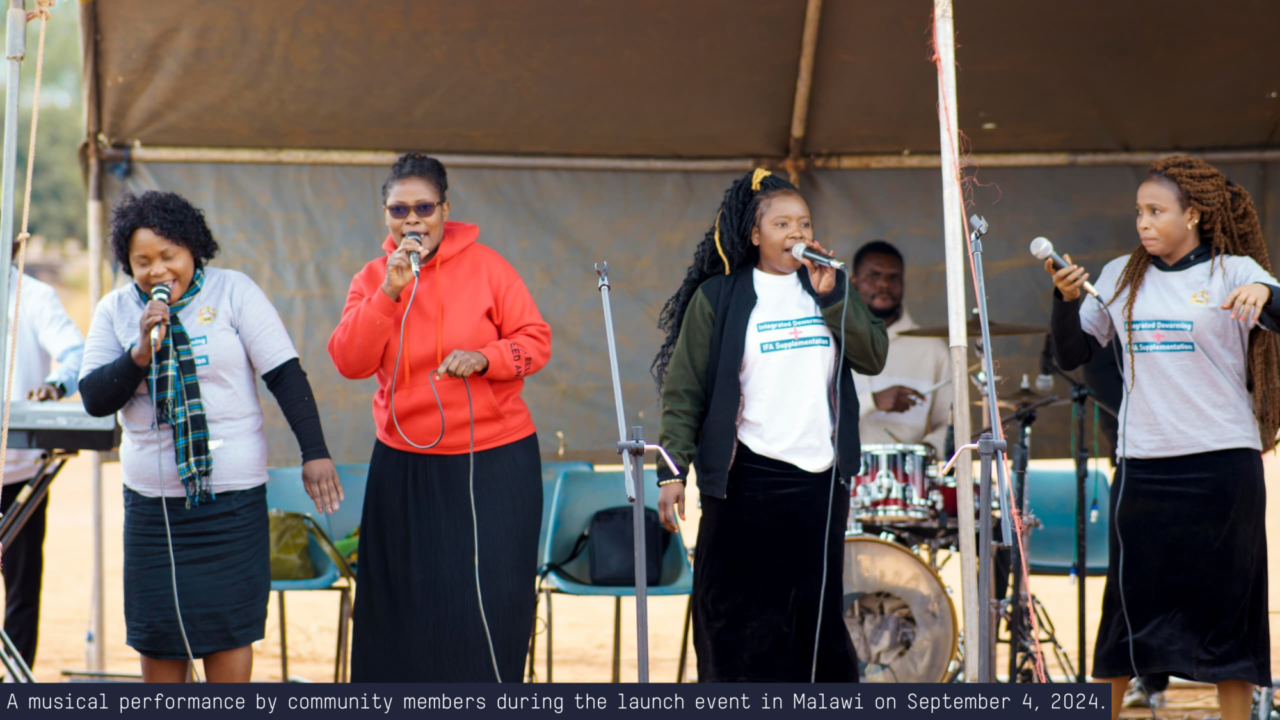In the past few months, despite continued school closures, disruption to global supply chains, and new waves of COVID-19 infections, our Deworm the World Initiative has remained active across every country where we operate. Our teams are continually adapting our support to governments to ensure that deworming can continue to reach at-risk children—and with immense efforts many programs have recently provided treatment or will do so imminently. Read on for updates across our geographies.
Kenya
Every year, Kenya’s National School-Based Deworming program targets over 6 million children throughout the country at risk of worm infection; treatment typically takes place across two “waves”. For most of 2020, however, the government mandated school closures to prevent the spread of COVID-19, which meant that the deworming campaigns could not take place.
When the Government of Kenya reopened schools in January 2021, our team compressed what normally takes over two months of planning and coordination into just three weeks, and helped the government successfully conduct the first wave in March 2021, targeting 2.8 million children. The second wave is planned for September 2021, targeting approximately 4 million school-age children across twenty counties.
During the summer of 2021, our team engaged with health officials to discuss forward-looking program delivery strategies for 2022 and 2023. The discussions centered on how to increase the financial investment of the Kenyan government in order to increase sustainability and reduce dependency on international donations, refine deworming treatment strategies, and improve program cost-effectiveness.
Members of our team also collaborated with researchers from the Kenya Medical Research Institute, the University of Nairobi, and the London School of Hygiene and Tropical Medicine to publish a secondary analysis of the National School-Based Deworming program data, to analyze treatment coverage for STH in preschool and school-age children in Kenya. The research provides valuable insights that might help the National School-Based Deworming program accelerate the elimination of STH as a public health problem.
India
In India, for the upcoming National Deworming Day (NDD), which will be held at different dates between August and October 2021, ten Evidence Action-supported states are planning to continue with the community-based approach we helped the Government of India introduce last year, and one will conduct a mixed strategy combining community-based and school-based deworming. The total population being targeted is approximately 206 million children aged 1-19 years.
The community-based approach consists of frontline health workers delivering treatment directly to children over several weeks, either by going from house to house or at designated sites, including anganwadis (preschools), Health Sub-centres (community clinics), and urban primary health centers.
Frontline health workers are playing a key role in India’s response to the pandemic, having dramatically expanded their responsibilities to include administering COVID-19 vaccinations and testing. Nevertheless, the government deemed the deworming program to be essential and asked the frontline workers to include these activities as part of their duties. To minimize their exposure risks to COVID-19, gloves, and masks are being provided on a bi-weekly basis, and funds are available to procure additional pairs of gloves, masks, and hand sanitizer, if needed. All communications and materials designed for NDD also include safety measures for frontline workers based on WHO and government guidelines.
Nigeria
In May 2021, we worked with the Lagos State government to implement the first large-scale deworming campaign in Lagos targeting 1.3 million school-age children for soil-transmitted helminths (STH). It was a particularly challenging endeavor given that the city has been the epicenter of COVID-19 in the country. We will explore in further detail how we were able to help conduct deworming in an upcoming blog.
In Ogun State, we helped the government conduct a deworming campaign in June 2021 for the fifth year in a row, targeting 300,000 school-age children for STH and schistosomiasis.
In Oyo State, in July 2021 we helped the government conduct a deworming campaign targeting 907,000 school-age children for STH. Plans for the second round of deworming in 2021 are still in process. We have been supporting deworming in this state since 2017.
In Rivers State, this year deworming was planned for June targeting approximately one million children. However, due to supply chain issues we are helping to solve, deworming has been delayed with no new date having been set.
Pakistan
Over the past year and a half, schools in Pakistan have mostly remained closed due to high COVID-19 infection rates. In the past months, as the COVID-19 infections have decreased and schools have started to reopen, we have been working closely with government partners and our implementing partner organization (IRD Pakistan) to prepare for deworming across Islamabad Capital Territory, Punjab, Khyber Pakhtunkhwa, and Sindh from August through October 2021, with a target of approximately 10 million school-age children.
Owing to the large proportions of school-age children who are inaccessible or difficult to reach, such as children who are attending unregistered private schools or religious schools (madrassas), as well as out of school children, the deworming programs are leveraging community health workers, along with teachers in schools, to deliver treatment. Specifically, in ICT—where over 20% of the school-age children are considered hard to reach—community health workers will deliver treatments to a targeted group of private schools and religious schools that have not been treated previously. In Sindh, where approximately 80% of the school-age children are considered hard to reach, community health workers will be leveraged to deliver treatments across all schools and communities in at-risk districts. To account for the change in delivery platform, we have adapted all aspects of the deworming program, such as microplanning, training, community mobilization, and monitoring and evaluation.
Pakistan also launched its first national deworming awareness campaign in August 2021, aimed at increasing the awareness of intestinal worm infections as a public health problem, and increasing demand for deworming from governments, parents, teachers, and children. The Government of Pakistan has pioneered this campaign with the goal of achieving widespread national recognition for the Pakistan Deworming Initiative. As part of this campaign, we supported the development of a television commercial, a cartoon series, as well as several public service messages by key government stakeholders and celebrities. All content is currently being disseminated through television, radio, and social media.



